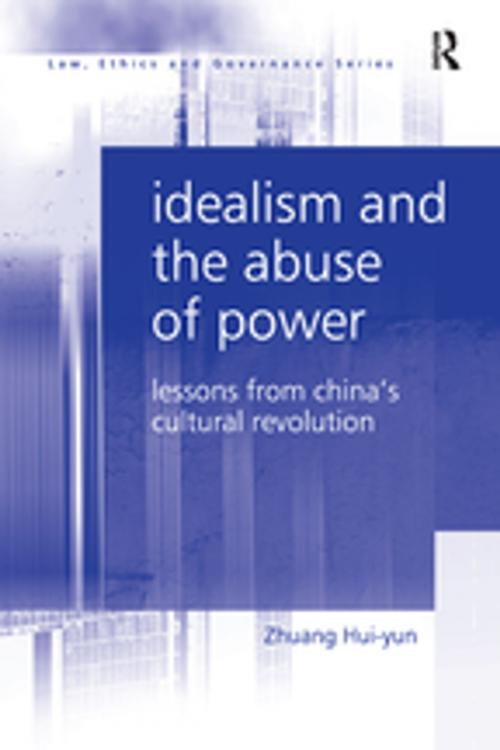Idealism and the Abuse of Power
Lessons from China's Cultural Revolution
Nonfiction, Reference & Language, Law, Jurisprudence| Author: | Zhuang Hui-yun | ISBN: | 9781351929172 |
| Publisher: | Taylor and Francis | Publication: | December 5, 2016 |
| Imprint: | Routledge | Language: | English |
| Author: | Zhuang Hui-yun |
| ISBN: | 9781351929172 |
| Publisher: | Taylor and Francis |
| Publication: | December 5, 2016 |
| Imprint: | Routledge |
| Language: | English |
This book analyses the abuse of idealism with particular reference to China's Cultural Revolution. The work examines abuse at two levels: the state leaders' metaphysical vision as the interpretation of idealism at the top with state power; and the psychological state of the masses at the bottom of society. The concept of abuse itself is discussed with the author arguing that idealism is often used to justify abuse while many are all too willing to accept this as idealism itself. On the other hand, many dismiss the idealist vision because of the horrible consequences of the abuse. For these reasons, the book holds that abuse of idealism should not be confused with the original intent of idealism. It is further argued that the masses often complement dictatorship due to a basic weakness of human nature. Finally, the book proposes that the concepts of human dignity and equal access to truth are prerequisites for the effective rule of law within China.
This book analyses the abuse of idealism with particular reference to China's Cultural Revolution. The work examines abuse at two levels: the state leaders' metaphysical vision as the interpretation of idealism at the top with state power; and the psychological state of the masses at the bottom of society. The concept of abuse itself is discussed with the author arguing that idealism is often used to justify abuse while many are all too willing to accept this as idealism itself. On the other hand, many dismiss the idealist vision because of the horrible consequences of the abuse. For these reasons, the book holds that abuse of idealism should not be confused with the original intent of idealism. It is further argued that the masses often complement dictatorship due to a basic weakness of human nature. Finally, the book proposes that the concepts of human dignity and equal access to truth are prerequisites for the effective rule of law within China.















